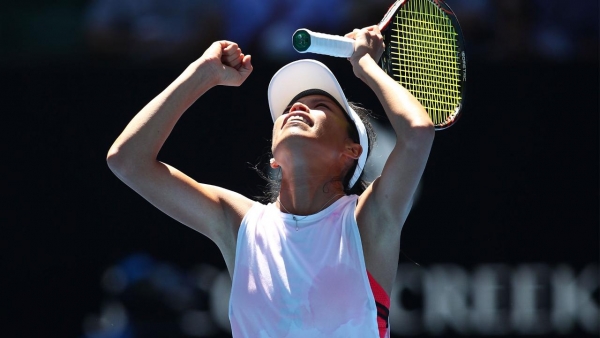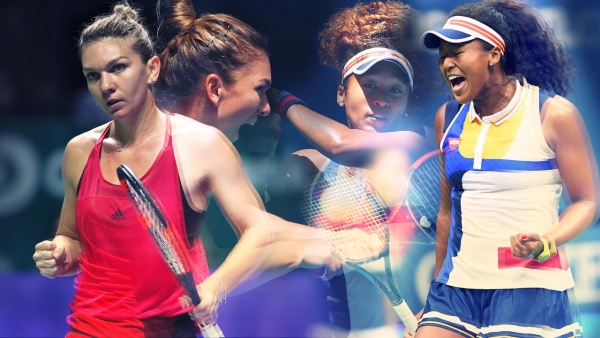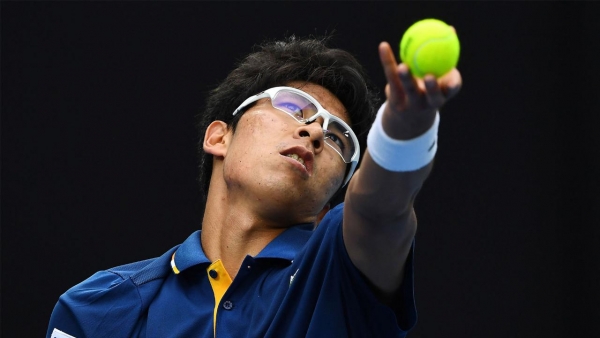The Grand Slam of Asia-Pacific is living up to its reputation.
For just the second time this century, three Asian players – Japan’s Naomi Osaka, Korean Hyeon Chung and Su-Wei Hsieh of Chinese Taipei – have advanced to the second week at the Australian Open.
The last time that happened was in 2012, a banner tournament for Asian tennis when Kei Nishikori (Japan), Li Na and Zheng Jie (China) and Mikhail Kukushkin (Kazakhstan) all reached the last 16.
Yet there’s perhaps something more notable about this year’s trio. Two are considered among the game’s most exciting rising stars, while the other is a player at the opposite end of the career spectrum, celebrating the 10th anniversary of the last time she reached this stage at Melbourne Park.
That player is Hsieh, who advanced to the fourth round as a qualifier in 2008. But unlike a decade earlier, where the highest-ranked player she beat was 19th seed Sybille Bammer, this year’s campaign has featured stunning upsets of two-time major champion Garbine Muguruza and former world No.2 Agnieszka Radwanska.
With the in-form Angelique Kerber next up for the world No.88, could another big upset be on the cards? "I don't know, but I will try," she told the crowd at Margaret Court Arena after beating Radwanska in straight sets.
She’ll play second up at Rod Laver Arena against Kerber on Monday.
While Hsieh’s run has felt like something of a heart-warming anomaly, the same cannot be said for Osaka and Chung, who have been trending in this direction ever since they emerged on tour as hot prospects.
Osaka’s straight-sets defeat of No.18 seed Ash Barty thrust her into the fourth round at a Grand Slam touranment for the first time. And she couldn’t have been more comfortable in her surroundings at Margaret Court Arena.
“Thank you very much because I've never played in an atmosphere like this,” the 20-year-old said on court to cheers. “I've always wanted to play an Australian player because on TV it always seems really cool (smiling).”
She added later: “Ashleigh, she's been playing really well. I feel like I shouldn't get upset if I lose a point because she's one of the best players in the world. I just tried to have fun but also remain focused.”
She’ll have to maintain that focus if she’s to progress further; lying in wait in the last 16 is top seed and world No.1 Simona Halep, scheduled for the same court where she overcame Barty.
“I've played her (Halep) twice, and both times it was three sets. I had fun both times. I feel like I learned a lot,” Osaka said.
“I feel playing the No.1 is really an honour. No matter what happens, I'll try my best.”
Chung was aware of Osaka’s success, which occurred at roughly the same time he was getting the better of fourth seed Alexander Zverev across at nearby Rod Laver Arena. In an absorbing five-setter between two of the game’s “Next Gen” stars, it was Chung who got stronger as the match wore on, winning the last two sets 6-3 and 6-0 against an opponent ranked 54 places higher.
One journalist ventured that it “kind of an Asian day” at the Australian Open as the two young talents simultaneously arrived in the second week of a major tournament for the first time.
“I'm just so happy to make the fourth round in slams with so many good players. Naomi also. We are good friends,” he said.
“I don't want to stop here. Keep going, I want.”
Like Hsieh and Osaka, his next assignment is especially tough, coming in the form of six-time champion Novak Djokovic.
And like his fellow competitors from this burgeoning tennis continent, the match-up was seen as nothing but an exciting opportunity to test his game and see if he could extend his breakthrough run in Melbourne a little longer.
“I have one more chance to play with a great player in the world,” Chung said.
“I'm just happy to share the court with Novak.”


